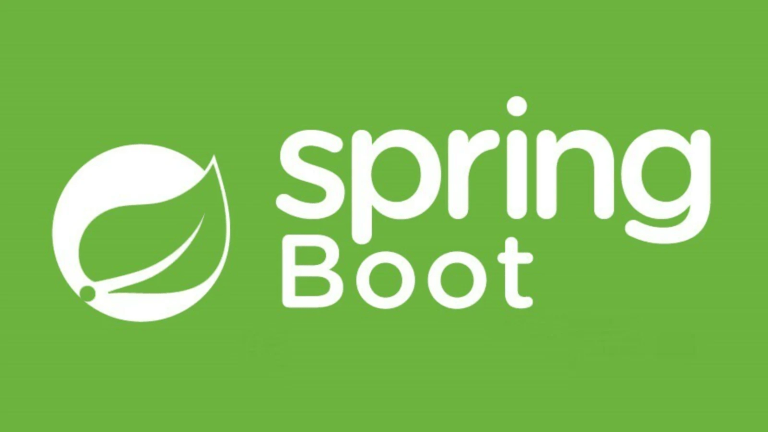TypeScript Crash Course for JavaScript Developers –Types, Interfaces, Generics & Classes
TypeScript has taken the JavaScript world by storm. For JavaScript developers in 2025, TypeScript isn’t just a tool—it’s a necessity. With its strong typing, enhanced productivity, and ability to scale projects, TypeScript bridges the gap between flexibility and structure. It improves code quality, makes debugging quicker, and enables teamwork on large applications with ease.
If you’re a JavaScript developer curious to learn how TypeScript can revolutionize your workflow, this beginner-friendly crash course covers the fundamentals of types, interfaces, generics, and classes. You’ll also get practical examples to make it easier to start writing TypeScript today.
Table of Contents
- Why TypeScript Matters for JavaScript Developers in 2025
- Getting Started with TypeScript
- Understanding Types in TypeScript
- Using Interfaces in TypeScript
- Generics Made Simple
- Classes in TypeScript
- Tips for Mastering TypeScript
- FAQs About TypeScript in 2025
1. Why TypeScript Matters for JavaScript Developers in 2025
TypeScript is an open-source, strongly typed superset of JavaScript. It compiles to plain JavaScript and can run anywhere JavaScript does—browsers, Node.js, or any JavaScript engine.
Benefits of TypeScript:
- Strong Typing: Catches type-related bugs during development, saving you from runtime errors.
- Better IDE Support: Auto-complete, code navigation, and error detection are enhanced.
- Improved Collaboration: A well-typed codebase is more readable and easier to maintain in team projects.
- Supports Future JavaScript Features: TypeScript provides cutting-edge ECMAScript features before they’re officially released in JavaScript.
Here’s why adopting TypeScript in 2025 is non-negotiable:
- Modern frameworks like Angular are built on TypeScript.
- TypeScript integrates seamlessly with React, Vue.js, and Node.js.
- Large-scale applications demand TypeScript’s ability to prevent subtle bugs.
2. Getting Started with TypeScript
Before we dive into the core concepts, you need to set up a TypeScript development environment.
Installing TypeScript
- Make sure Node.js and npm are installed.
- Install TypeScript globally using npm:
npm install -g typescript
- Verify installation:
tsc --version ``` You should see the installed version of TypeScript. ### Setting Up a TypeScript Project 1. Initialize a project:
npm init -y
2. Install TypeScript locally:
npm install typescript –save-dev
3. Create a `tsconfig.json` file by running:
tsc –init
### Compiling TypeScript Files Write your code in files with the `.ts` extension. Compile them to JavaScript using:
tsc file.ts
That’s it! Now you’re ready to start coding in TypeScript. --- ## 3. Understanding Types in TypeScript Types are at the core of TypeScript’s design. They define the kind of data a variable or function can hold, allowing the compiler to catch errors at development time. ### Basic Types TypeScript includes many familiar types from JavaScript. #### Examples: 1. **Number**
let age: number = 25;
2. **String**
let name: string = “Alice”;
3. **Boolean**
let isAdmin: boolean = true;
4. **Array**
let scores: number[] = [80, 90, 100];
5. **Tuple**
let userInfo: [string, number] = [“Alice”, 25];
### Advanced Types #### Union Type: A variable can hold more than one type:
let value: string | number;
value = “hello”; // Valid
value = 123; // Also valid
#### Type Aliases: Simplifies complex type definitions:
type ID = string | number;
let userId: ID = 101;
#### Enums: Defines named constants:
enum Color {
Red,
Green,
Blue
}
--- ## 4. Using Interfaces in TypeScript An **interface** defines the structure of an object. It’s like a contract that ensures objects meet specific requirements. ### Example of an Interface:
interface User {
id: number;
name: string;
email?: string; // Optional property
}
### Using an Interface:
const user1: User = {
id: 1,
name: “John Doe”,
};
#### Extending Interfaces: Interfaces can inherit from other interfaces:
interface Admin extends User {
role: string;
}
--- ## 5. Generics Made Simple Generics allow you to create reusable components that work with any data type. ### Generic Function:
function getArray<T>(items: T[]): T[] {
return items;
}
const numArray = getArray<number>([1, 2, 3]);
const strArray = getArray<string>([“a”, “b”, “c”]);
### Why Use Generics? Generics offer flexibility while retaining strong type safety. --- ## 6. Classes in TypeScript Classes are an essential part of TypeScript's object-oriented programming model. They define templates for creating objects and support inheritance. ### Example Class:
class Person {
name: string;
constructor(name: string) {
this.name = name;
}
greet(): string {
return Hello, my name is ${this.name};
}
}
const john = new Person(“John”);
console.log(john.greet()); // Outputs: Hello, my name is John
### Access Modifiers: - **public:** Accessible everywhere (default). - **private:** Accessible only within the class. - **protected:** Accessible within the class and its subclasses. #### Example:
class Employee {
private id: number;
constructor(id: number) {
this.id = id;
}
getId(): number {
return this.id;
}
}
--- ## 7. Tips for Mastering TypeScript 1. **Start Small:** Enhance an existing JavaScript project by incrementally adding TypeScript files. 2. **Leverage IDEs:** Tools like VS Code offer excellent TypeScript support, including IntelliSense. 3. **Use Strict Mode:** Enable `strict` in `tsconfig.json` to enforce best practices. 4. **Practice Regularly:** Build small projects like TODO apps or calculators to solidify your understanding. 5. **Learn From the Community:** Explore TypeScript repositories on GitHub for inspiration. --- ## 8. FAQs About TypeScript in 2025 ### 1. Is TypeScript replacing JavaScript? No, TypeScript is a superset of JavaScript. It enhances JavaScript without replacing it. ### 2. Can TypeScript work with React and Vue? Yes, both React and Vue have rich TypeScript support and encourage its usage for better type safety. ### 3. How difficult is TypeScript for JavaScript developers? TypeScript is relatively easy for JavaScript developers, as it builds on top of JavaScript concepts. ### 4. Do I need TypeScript for small projects? Not necessarily. TypeScript shines in larger projects or those requiring strict type checking. --- TypeScript enables JavaScript developers to write safer, more maintainable code while improving development efficiency. By mastering its concepts—types, interfaces, generics, and classes—you'll unlock the full potential of modern JavaScript development. Start learning TypeScript today and future-proof your skills for 2025 and beyond!


